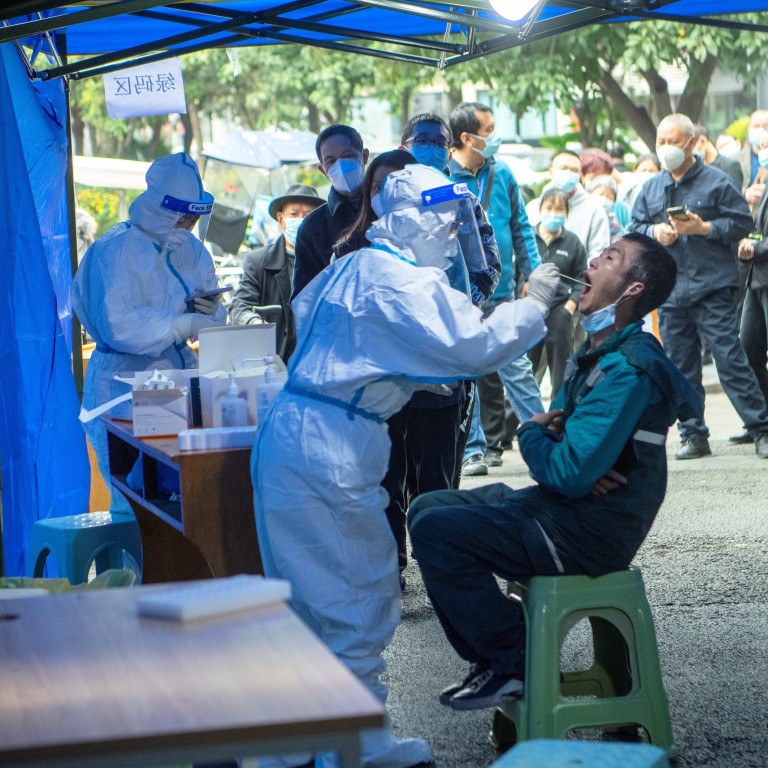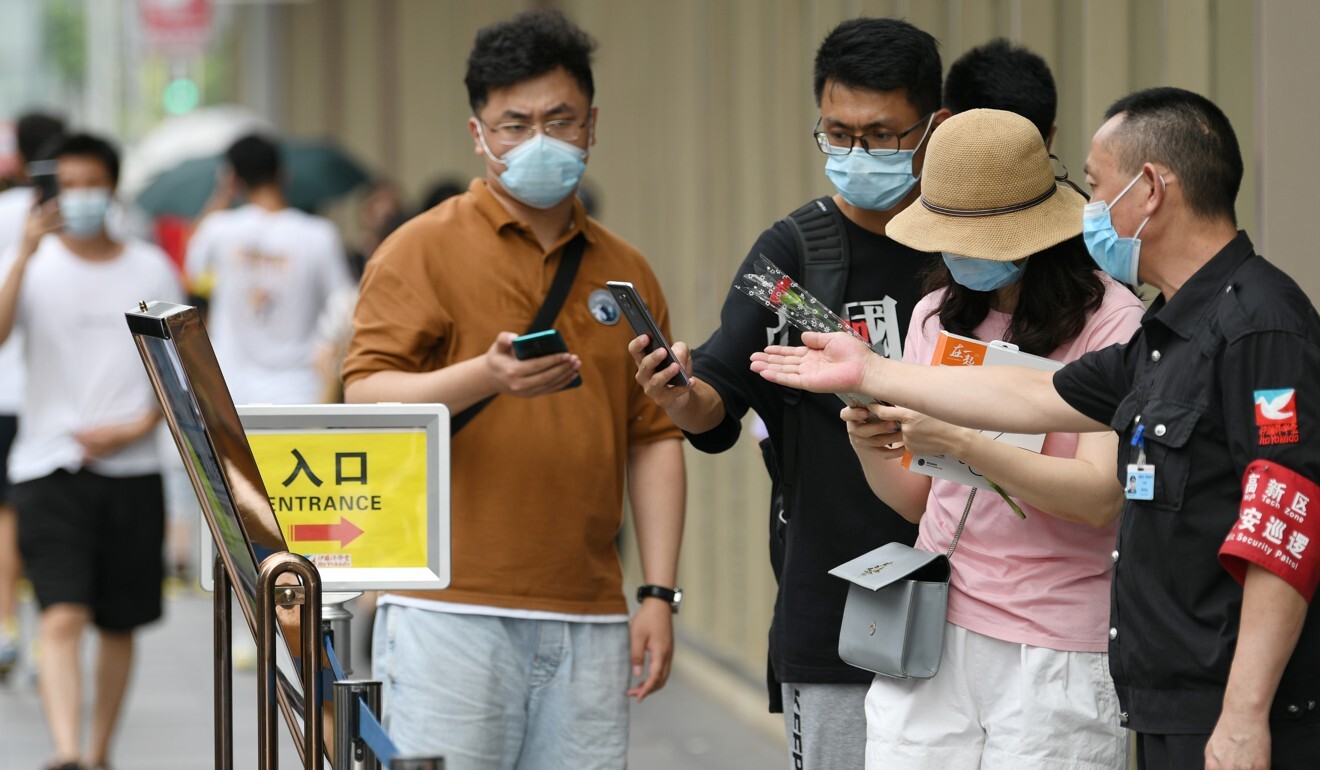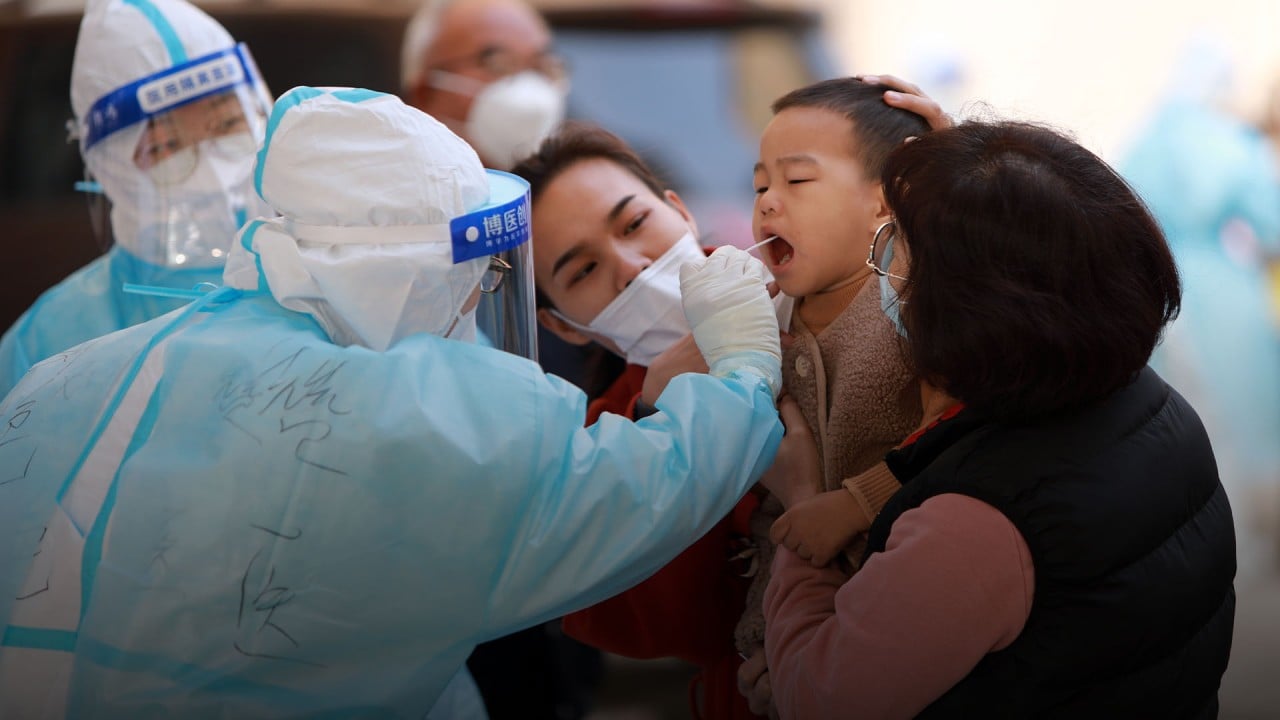
Coronavirus in China: tolerance wanes for Chengdu’s track and test regime
- People in the Sichuan capital find the local authority’s stringent measures to contain the latest Covid-19 outbreak harder to endure
- Experts from West China College of Public Health publish an open letter urgently calling for protection of privacy and minimal disruption to daily lives
The restrictions extended to people who were in contact with Ng and her girlfriend, who is a teacher, including 30 other teachers and 90 pupils, each with one of their parents, according to Ng.

“It is a bit mad here at the moment. The effects are being felt much more widely this time. Lots of Covid-19 tests all around. Is this happening in other cities as well right now?” Ng said.
Ng had to take a Covid-19 test almost every day since quarantine started, being swabbed in the nose and throat, and the results were all negative so far, she said.
Everyone in her residential complex in the Tongzilin district had to be tested at 6am on November 5. Residents queued in the cold, many of them still in their pyjamas, according to one of Ng’s neighbours.
Hong Kong reports third Covid-19 case involving ‘Delta Plus’ variant
Mass testing was organised for various compounds in Tongzilin because a case had probably been in the area, but there were no reports of a confirmed case in the neighbourhood, Ng said.
“There’s not a lot of information or answers, to be honest. Just open your mouth and say ahhh,” she said.
The National Health Commission said the zero-tolerance policy was a strategy based on science and was appropriate for the country’s conditions.
To decide who needs extra Covid-19 tests and might have to go into quarantine, Chengdu has introduced a system called the “time-space overlap”. This applies when a person has been being within 800 square metres (8,600 square feet) of a confirmed case for at least 10 minutes or when a person has been in a high-risk zone for more than 30 hours in the past 14 days.

01:44
China reports record 93 coronavirus cases in single day amid Delta outbreak
A person’s location is traced through mobile phone signals, according to local authorities. If someone is deemed to be a “time-space companion”, then their health code, used for contact tracing and recording medical records, turns yellow. They may be notified by Chengdu police to take two Covid-19 tests before being able to go out again.
More than 82,000 people were designated as a “time-space companion” because of five confirmed cases in less than a week, after the community outbreak in Chengdu began on November 2, according to provincial government and health commission data.
Location services on a modern mobile phone typically use a combination of cellular, Bluetooth, Wi-fi and the Global Positioning System to determine where people are, according to Michael Gazeley, co-founder of Hong Kong cybersecurity firm Network Box.
“It would depend on which technologies are being used by the app, in each country. Obviously different countries have different views of what is acceptable, in terms of privacy and tracking,” Gazeley said.
Typically, the accuracy will be around 2 to 3 metres (7 to 10 feet), but can vary greatly if the signal strength is poor. Also, location services track your phone and not “you”, according to Gazeley.
“So it is possible your phone was in your car, for example, but you were not,” he said.
China’s top disease expert lays down conditions for post-pandemic normal
Ng said the health codes of at least five of her friends turned yellow, but the technology was not consistent. She was under quarantine for being a close contact, so her health code should be red, but it was still green, Ng said.
Three experts from the West China College of Public Health also questioned the scientific basis for “time-space overlap”, and published an open letter seeking urgent privacy protections and efforts to minimise the disruption to daily lives.
Professors of public health Li Jiayuan and Wang Chuan, as well as doctor Chen Fujun, said the “time-space overlap” of 800 square metres did not fit any definition of close contact, secondary close contact, or normal contact as outlined by the NHC.
“Big data can help assess outbreak risks, help set containment measures and support the coordination of resources, but misuse of big data is against the principle of precise containment measures and should be prevented,” they said in the letter.
‘Your furry babies will die’: China is killing coronavirus patient’s pets
The authors added that by increasing the number of people with yellow health codes, and thus the number of Covid-19 tests to be carried out, medical and public health resources were being wasted, people were induced to panic and their daily lives were disrupted.
Chengdu recorded three new cases on Saturday, bringing the total number of patients being isolated or treated for Covid-19 to 41, according to the local health commission.
Ng had less than a week of quarantine to go. She has had to miss events planned for the anniversary of the radio station where she worked and a video shoot, she said.
“The general feeling is that it has gone a bit over the top this time,” Ng said.

